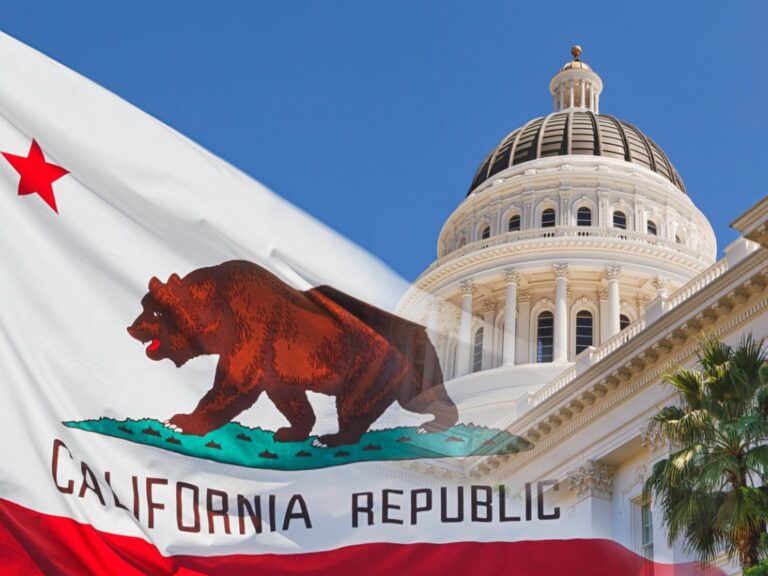New Legal Developments Help to Address Long-Standing Issues Impacting Nonprofit Organizations
By Casey Williams and Brett Overby
February 8, 2024

Casey Williams is a nonprofit business and employment attorney with Liebert Cassidy Whitmore. Her practice focuses on helping mission-driven organizations achieve their goals while staying compliant and working through complex disputes.
Brett Overby represents employers in the areas of labor, employment, education, and business and facilities. She also advises on nonprofit corporation formation and governance.
They can be reached at cwilliams@lcwlegal.comand boverby@lcwlegal.com.
The California Legislature passed, and Governor Gavin Newsom signed into law, three bills in 2023 that are particularly significant for nonprofit organizations in California, as each bill helps to address a unique, long-standing issue impacting nonprofit organizations. These bills include Assembly Bill 590 (AB 590), Senate Bill 446 (SB 446), and Assembly Bill 1185 (AB 1185). Each took effect on January 1, 2024. Executives of associations should be aware of these new laws, and evaluate if their organizations, or their member organizations, may benefit from them.
The first bill, AB 590, improves and expands California’s existing advance payment practices for the grants and contracts that are available to nonprofit entities through California state agencies. AB 590 provides eligible nonprofits that have grants or contracts with a state agency, with faster access to state funds by allowing them to receive advance payments in more circumstances, without having to front costs and then wait for reimbursement through the state grant or contract reimbursement process.
Specifically, AB 590 authorizes a state agency that administers a state grant program or contract to advance payments under that program or contract, provided certain requirements are met. Such requirements include, for example, that the nonprofit has 501(c)(3) status. AB 590 also imposes certain obligations on administering state agencies, such as prioritizing nonprofits that serve disadvantaged, low-income, and under-resourced communities or organizations with modest reserves and potential cashflow problems. AB 590 may be of particular note for associations that support nonprofits working on state-funded issues, like children and family services organizations.
The second bill, AB 1185, expands access to grant funding to address challenges faced by nonprofits at risk for violent attacks or hate crimes. The California Nonprofit Security Grant Program (CSNSGP), which was established in 2019 and expanded in 2022, provides grants to nonprofits that are at high risk for violent attacks and hate crimes due to ideology, beliefs, or mission, to improve their physical security (e.g., security guards, reinforced doors and gates, high-intensity lighting and alarms, and certain other security enhancements). AB 1185 expands the CSNSGP by authorizing the grant program to provide grants to an applicant that provides support to at-risk nonprofit organizations for vulnerability assessments, security training, mass notification alert systems, monitoring and response systems and lifesaving emergency equipment. Accordingly, AB 1185 may be of special interest to associations that provide that kind of support to their at-risk members, such as religious associations. Nonprofits that would like to apply for a grant under the CSNSGP can obtain information about doing so on the Cal OES website.
The third bill, SB 446, helps to close a gap in the law by extending certain ratification procedures and mechanisms that allow a California for-profit corporation to correct corporate governance actions that failed to comply with legal requirements when taken to California nonprofit corporations.
Specifically, in 2022, SB 218 created a statutory process that allows California for-profit corporations to ratify at the Board level or petition a court to validate non-compliant but otherwise lawful corporate actions. SB 446 extends the same statutory process to nonprofit corporations (as well as cooperative corporations).
Accordingly, SB 446 permits a nonprofit board to ratify certain types of non-compliant corporate actions by Board resolution. After ratification, the corporation must file a certificate of ratification with the Secretary of State if the ratified corporate action would have required filing or if any document previously filed becomes inaccurate or incomplete after giving effect to the ratification. If the Secretary of State refuses to file the certificate, SB 446 provides a means by which an authorized person may file a petition with the appropriate superior court to determine the validity of the corporate action. SB 446 excludes from its coverage certain types of corporate actions, such as the approval of self-dealing transactions. Executives seeking to take advantage of SB 446 to correct corporate governance filings or actions should speak with counsel to understand if and how they may benefit from SB 446.
Must read intelligence for general counsel
Subscribe to the Daily Updates newsletter to be at the forefront of best practices and the latest legal news.
Daily Updates
Sign up for our free daily newsletter for the latest news and business legal developments.




